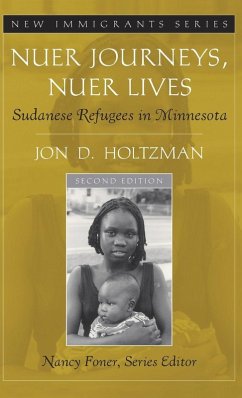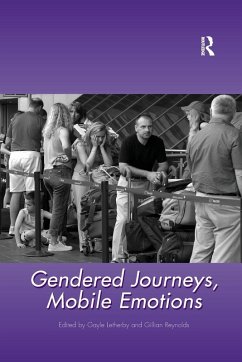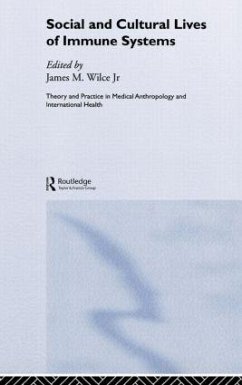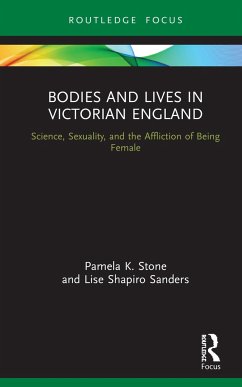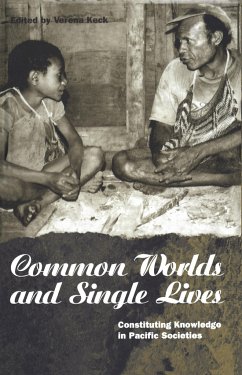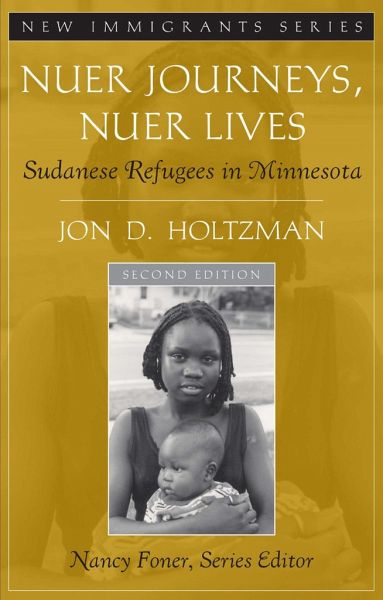
Nuer Journeys, Nuer Lives
Sudanese Refugees in Minnesota
Versandkostenfrei!
Versandfertig in 1-2 Wochen
57,99 €
inkl. MwSt.
Weitere Ausgaben:

PAYBACK Punkte
29 °P sammeln!
This book examines contemporary migration to the United States through a surprising and compelling case study - the Nuer of Sudan, whose traditional life represents one of the most important case studies in the history of anthropology.
It provides an opportunity to examine issues of current importance within anthropology, such as social change, transnationalism, displacement, and diaspora in an easy to understand manner.
In understanding the experiences of the Nuer, students will not only gain insights into the world refugee problem and the role of immigration in the United States, they will also learn about the features of Nuer life which are considered a standard part of the anthropology curriculum.
The book juxtaposes elements of Nuer culture which are well-known within anthropology - and featured in most anthropology textbooks - with new developments arising from the immigration of many other Nuer to the U.S. in the 1990s as refugees from civil war in southern Sudan.
Consequently, this book will fit well within existing anthropology curricula, while providing an important update on descriptions of traditional life.
Product Description
This book examines contemporary migration to the United States through a surprising and compelling case study - the Nuer of Sudan, whose traditional life represents one of the most important case studies in the history of anthropology.
It provides an opportunity to examine issues of current importance within anthropology, such as social change, transnationalism, displacement, and diaspora in an easy to understand manner.
In understanding the experiences of the Nuer, students will not only gain insights into the world refugee problem and the role of immigration in the United States, they will also learn about the features of Nuer life which are considered a standard part of the anthropology curriculum.
The book juxtaposes elements of Nuer culture which are well-known within anthropology - and featured in most anthropology textbooks - with new developments arising from the immigration of many other Nuer to the U.S. in the 1990s as refugees from civil war in southern Sudan.
Consequently, this book will fit well within existing anthropology curricula, while providing an important update on descriptions of traditional life.
Features + Benefits
Explores the origins of the civil war in Sudan, the struggles of the Nuer to leave the country, their immigration to the United States, and their recent, and current experiences as they struggle to find a place and make sense of life in an unfamiliar land.
Contrasts the Nuer's economy of pastoralism and subsistence agriculture in Sudan to their struggle as newcomers in the U.S., surviving on low-end jobs and welfare.
Illustrates the changes in Nuer marriage and family life in the U.S., including such problems as domestic violence and the relationships the Nuer are forging with Americans in the communities in which they have settled.
Provides several vignettes in each chapter to capture student interest.
Focuses on gender and women's issues (Ch. 4).
Focuses on key issues in international migration and immigrant resettlement in the United States.
Part of the New Immigrants Series, a set of case studies that explores the lives and various challenges faced by new immigrants.
Foreword to the Series
Acknowledgments
Preface
I. Introduction
II. Nuer Journeys: War, Flight, and Resettlement
III. The Birth of a Community
IV. Jobs, Welfare, College, and Cars
V. Gender, Generation, and Family Change
VI. Nuer Refugees in the American Community
VII. Looking Forward
References
It provides an opportunity to examine issues of current importance within anthropology, such as social change, transnationalism, displacement, and diaspora in an easy to understand manner.
In understanding the experiences of the Nuer, students will not only gain insights into the world refugee problem and the role of immigration in the United States, they will also learn about the features of Nuer life which are considered a standard part of the anthropology curriculum.
The book juxtaposes elements of Nuer culture which are well-known within anthropology - and featured in most anthropology textbooks - with new developments arising from the immigration of many other Nuer to the U.S. in the 1990s as refugees from civil war in southern Sudan.
Consequently, this book will fit well within existing anthropology curricula, while providing an important update on descriptions of traditional life.
Product Description
This book examines contemporary migration to the United States through a surprising and compelling case study - the Nuer of Sudan, whose traditional life represents one of the most important case studies in the history of anthropology.
It provides an opportunity to examine issues of current importance within anthropology, such as social change, transnationalism, displacement, and diaspora in an easy to understand manner.
In understanding the experiences of the Nuer, students will not only gain insights into the world refugee problem and the role of immigration in the United States, they will also learn about the features of Nuer life which are considered a standard part of the anthropology curriculum.
The book juxtaposes elements of Nuer culture which are well-known within anthropology - and featured in most anthropology textbooks - with new developments arising from the immigration of many other Nuer to the U.S. in the 1990s as refugees from civil war in southern Sudan.
Consequently, this book will fit well within existing anthropology curricula, while providing an important update on descriptions of traditional life.
Features + Benefits
Explores the origins of the civil war in Sudan, the struggles of the Nuer to leave the country, their immigration to the United States, and their recent, and current experiences as they struggle to find a place and make sense of life in an unfamiliar land.
Contrasts the Nuer's economy of pastoralism and subsistence agriculture in Sudan to their struggle as newcomers in the U.S., surviving on low-end jobs and welfare.
Illustrates the changes in Nuer marriage and family life in the U.S., including such problems as domestic violence and the relationships the Nuer are forging with Americans in the communities in which they have settled.
Provides several vignettes in each chapter to capture student interest.
Focuses on gender and women's issues (Ch. 4).
Focuses on key issues in international migration and immigrant resettlement in the United States.
Part of the New Immigrants Series, a set of case studies that explores the lives and various challenges faced by new immigrants.
Foreword to the Series
Acknowledgments
Preface
I. Introduction
II. Nuer Journeys: War, Flight, and Resettlement
III. The Birth of a Community
IV. Jobs, Welfare, College, and Cars
V. Gender, Generation, and Family Change
VI. Nuer Refugees in the American Community
VII. Looking Forward
References





